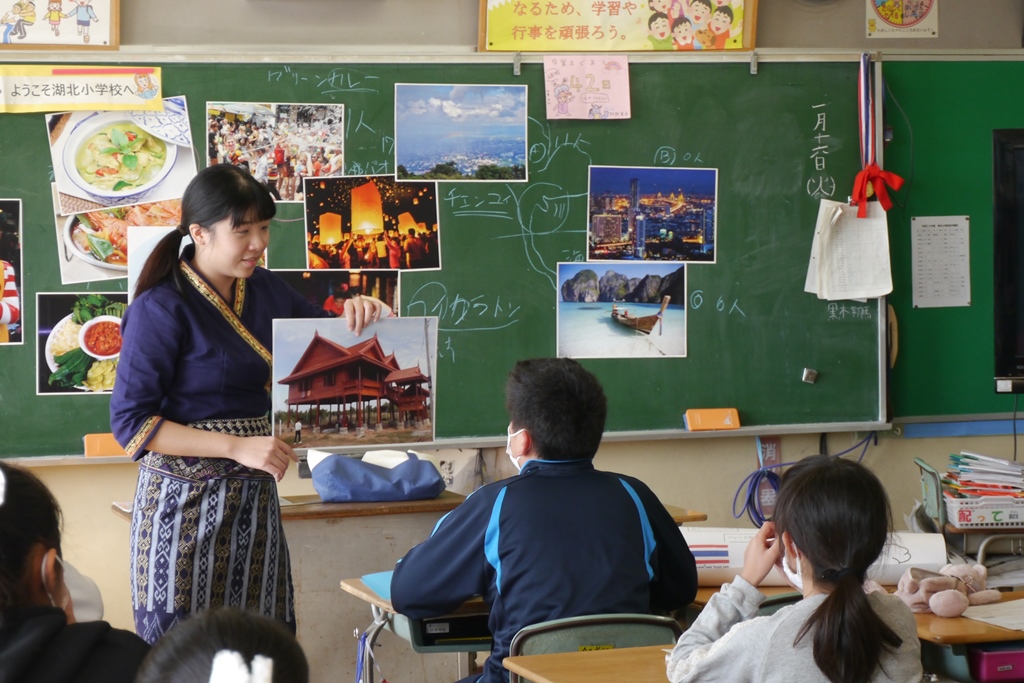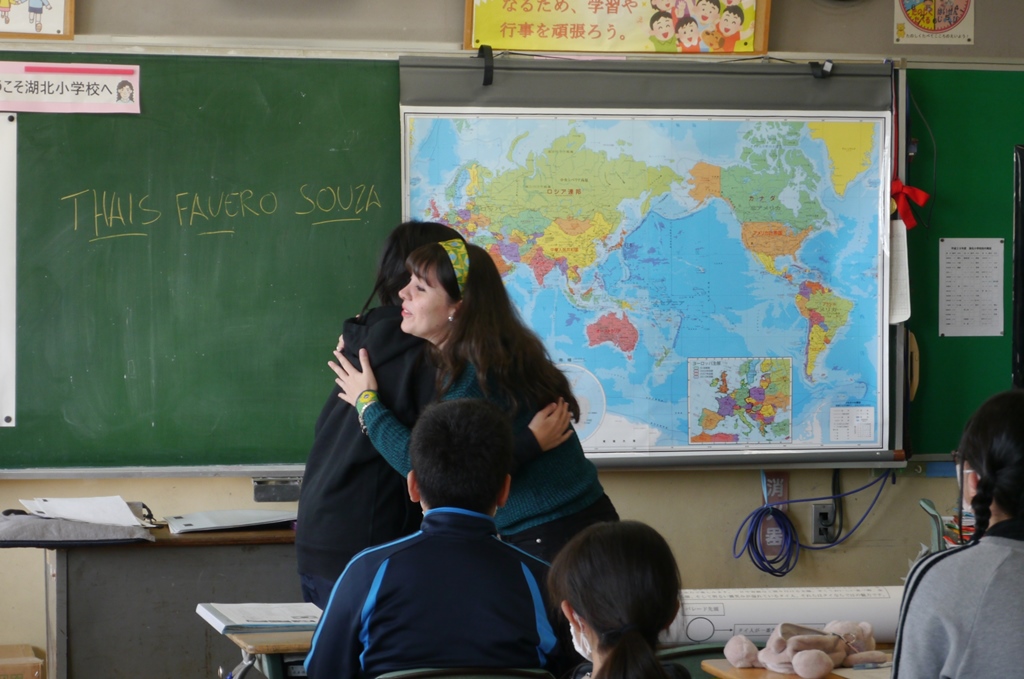
Date: January 16 (Tue), 2018 10:40-12:15
Location: Abiko Kohoku Elementary School
Pupils: The 6th grade, 1&2 classes.
Guest Teachers: Ms. Sae Lee Chonnikan ( Thailand )
Ms. Favero Souza Thais ( Brazil )
AIRA supporters: Mr. Kudo and Ms. Tabuchi
APIU: Mr. Miyachi
AIRA has been supporting international activities of the elementary school pupils by sending volunteers for pick-up service from Abiko station to the school. At school, the 6th grade pupils warmly welcomed the teachers.
Ms. Sae Lee is a student of Tsukuba University majoring in sociology. She told the class that her future dream is to support and to help to improve the living standard of ASEAN people. Wearing a Thai national (folk) costume, she introduced Thailand. Take greetings for example, male and female words are not the same--- men say “Swadee-krap” and “Swadee ka” is for women.
She spoke about popular Thai foods which were influenced a lot by India and China : Tom Yamu Kun.Kenn Kyao Wan (Green Curry)Kra Prao.
At home Thai original Nam Phrik is quite popular.
New Year in Thailand is April 13-15. During New Year people sprinkle water on passers-by without hesitation and indiscriminately. The festival is called Songkran.
Her birthplace, Chiang Mai (north Thailand), is famous for Lantern Floating Festival which spreads very beautiful colors over the night sky。
Every November, people also enjoy Roy Kratonn festival: the floating lanterns on the river.
Ms.Favero is learning international laws at the graduate school of Waseda University. She became interested in Japan thru Japanese animation and decided to come to Japan from the other side of the earth---about a 12- hour time difference.
Her dream in the future is to be a bridge between countries and to support overseas students and persons from different nations who are living outside of their home country.
About the life style and culture in Brazil, normally greeting starts with a light hug and very light cheek kiss. She told that she felt lonesome and sad sentiments at the first stage in Japan because not well acquainted with the local habits.
Brazil adapted a lot of different cultures from many countries introduced by immigrants. Take food habits for example, many dishes are arranged to suit the locals. Brazilians generally like very sweet dessert therefore you can enjoy like strawberry- sushi, chocolate-banana sushi etc. etc.
The pupils asked the two teachers so many questions: # What surprised you in Japan? # What do you like? # Can you eat wasabi? # Do all children play football in Brazil? The questions were uninterrupted.
Learning directly from the foreign teachers about their country, food habits, different culture and the way of doing things etc. etc. have surely broadened the children’s international understanding.
AIRA volunteer drivers can also listen to the class. An event like this is a hands-on study class about other cultures.
(Translated by Mitsuru Sato)



